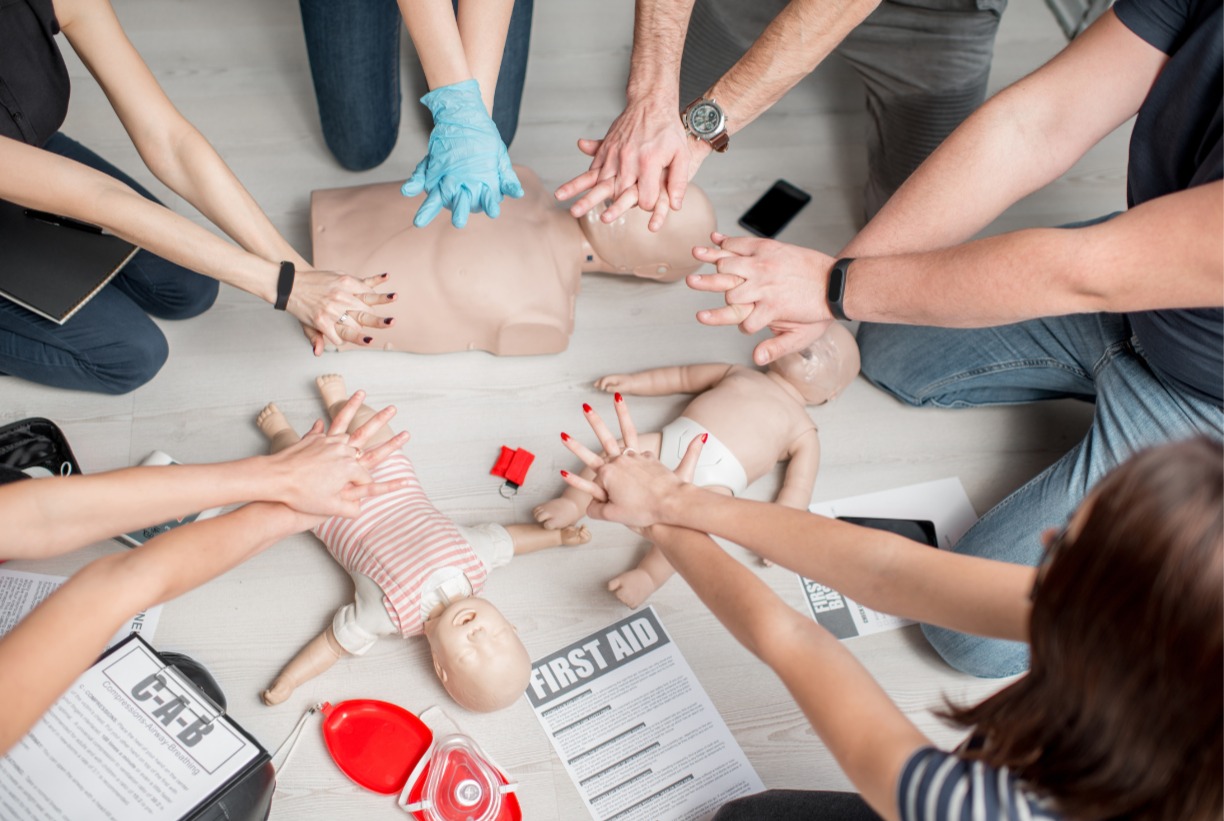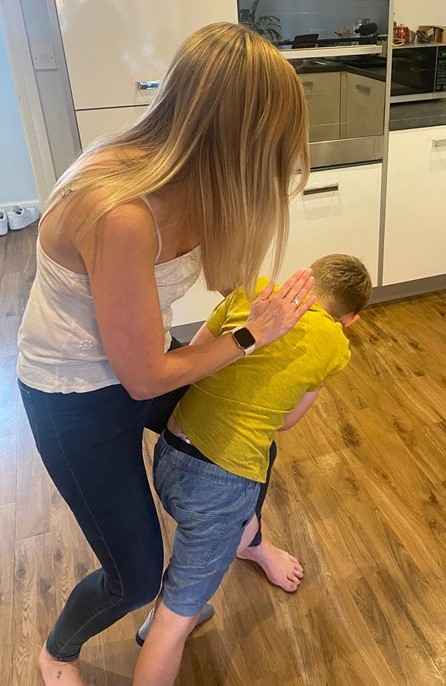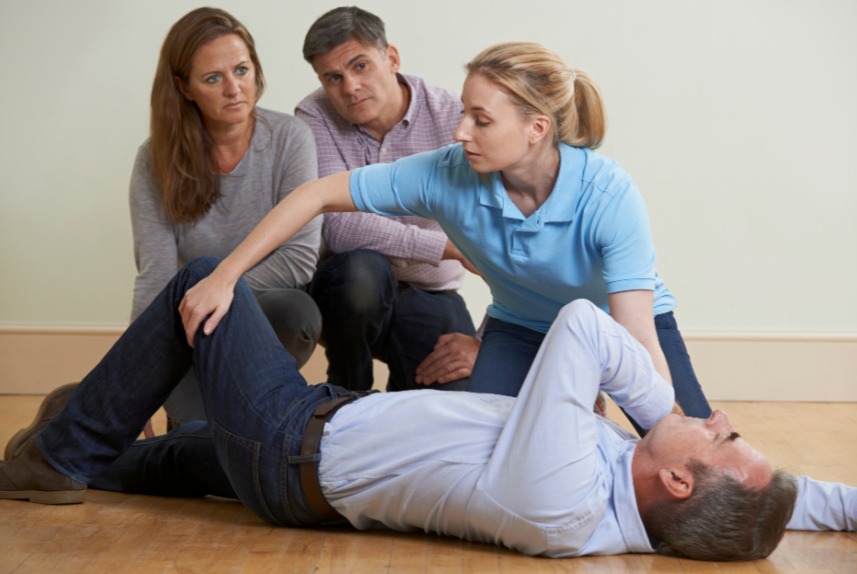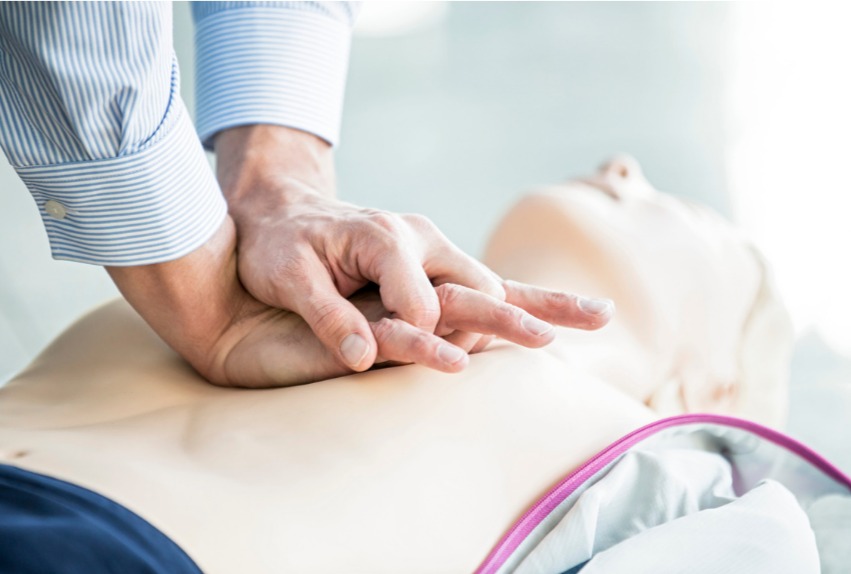First aid emergencies can happen at any time, often when we least expect them. Whether you witness someone collapsing in a shopping centre, an accident on the street, or a medical emergency in the workplace, knowing how to respond can make all the difference.
In these moments, staying calm and taking the right steps can help protect the casualty, those around you, and yourself. Here’s what you should do if you find yourself in a public first aid situation.
Stay calm and assess the situation
Your initial reaction in an emergency can set the tone for those around you. It’s natural to feel a rush of adrenaline, but remaining calm will help you think clearly and act effectively.
Take a moment to assess the situation and ask yourself:
- What has happened?
- How many people are involved?
- Are there any immediate dangers to yourself or others?
Panicking can make an already stressful situation worse. A calm and composed approach not only helps you focus but also reassures the casualty and any bystanders. Make sure to call 999 as soon as possible; the sooner the emergency services arrive, the better for all involved.
Check for surrounding risks
Always remember that your safety is the top priority. It may be your first instinct to get to the casualty as fast as you can, but before rushing in to help, make sure to look for any potential dangers. Certain emergencies require extra caution and should not be approached unless you have been trained to deal with them or it is safe to do so. These include:
- Electrical hazards – live wires or downed power lines could also harm you, so it is safer to stay away.
- Fires or gas leaks – the risk of explosion or inhalation hazards can also be a risk to you and others. Stay put, and don’t approach if you can see fire or smell gas.
- Drowning rescues – strong currents or deep water can cause danger to you as well as the victim.
- Suspected spinal injuries – movement could cause further damage, so it is always best to leave suspected spinal injuries to the professionals who are trained to deal with them.
If there is any danger, keep a safe distance and call 999 immediately. You can still provide crucial help by offering reassurance to the casualty and following instructions from the emergency call handler.
Communicate clearly
In stressful situations, clear communication is essential. Speak calmly to the casualty and any bystanders. Reassure the injured person and ask them simple questions about their condition. They may be frightened and upset, but it is crucial to provide comfort where possible.
Remember, people react differently when they are hurt or in shock; some may be confused, unresponsive, or even agitated. Your job at this stage is to keep them as calm as possible while waiting for the emergency services to arrive.
Prioritise life-threatening conditions
If multiple people are injured, it can be overwhelming to decide where to begin. Always prioritise life-threatening conditions first. These may include:
- Difficulty breathing
- Major bleeding
- Severe head injuries
- Trauma to vital organs
Quick recognition and immediate action can be crucial in saving a life. If you are trained in first aid, use your knowledge to administer care. However, either way, it is essential to call 999 and follow the guidance given to you by the emergency operator.
Reducing the risk of emergencies
While we can’t always predict emergencies, we can take steps to reduce their likelihood. They may feel like a time waster, but risk assessments, whether in the workplace or public settings, play a vital role in preventing accidents.
First aid training for businesses is also essential for being able to handle accidents if they arise in day-to-day settings. Training your team in these skills can give them the confidence to help both at work and in public settings.
Building confidence with first aid training
If you’ve ever worried about how you’d react in an emergency, first aid training can give you the confidence and skills to step in when it matters most.
At First Class First Aid, I provide professional emergency first aid training, helping individuals and businesses feel prepared to handle unexpected situations. My courses cover essential first-aid techniques, ensuring you know exactly what to do in an emergency.
Book a first aid course with me today by using my contact form or giving me a call on 01603 336329 to find out more.





